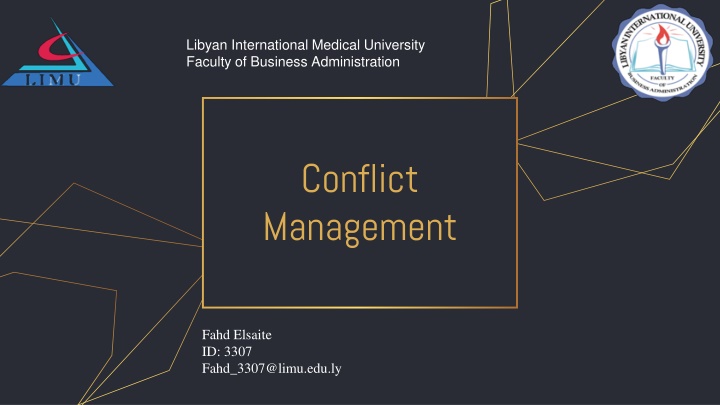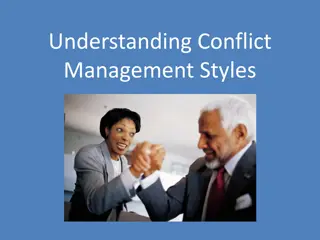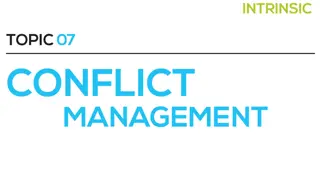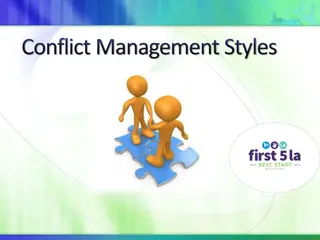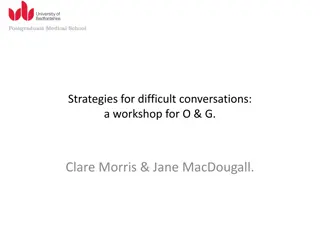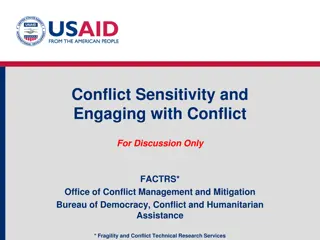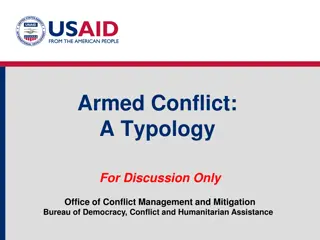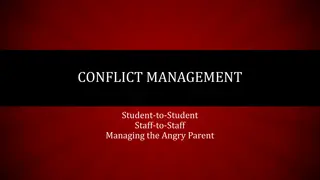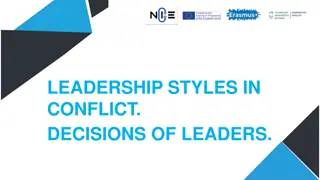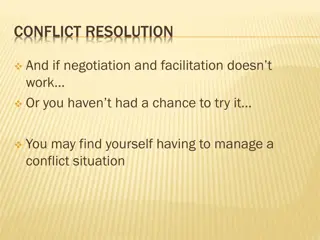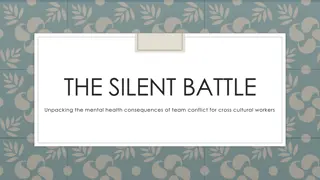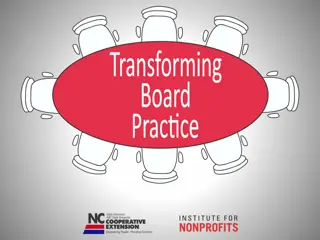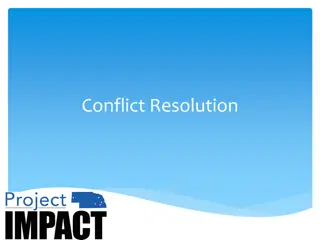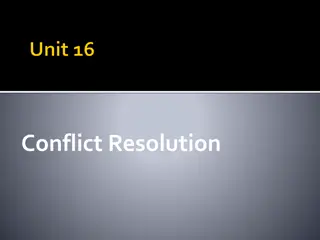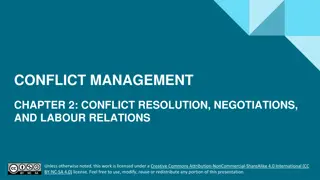Effective Conflict Management Strategies
In managing conflict, various factors like goals, emotions, attitudes, and family history influence the strategies chosen. Understanding and utilizing effective conflict management strategies can lead to positive outcomes, while inappropriate strategies may impact psychological health negatively. This article delves into the importance of considering these factors and selecting suitable strategies to resolve conflicts.
Download Presentation

Please find below an Image/Link to download the presentation.
The content on the website is provided AS IS for your information and personal use only. It may not be sold, licensed, or shared on other websites without obtaining consent from the author.If you encounter any issues during the download, it is possible that the publisher has removed the file from their server.
You are allowed to download the files provided on this website for personal or commercial use, subject to the condition that they are used lawfully. All files are the property of their respective owners.
The content on the website is provided AS IS for your information and personal use only. It may not be sold, licensed, or shared on other websites without obtaining consent from the author.
E N D
Presentation Transcript
Libyan International Medical University Faculty of Business Administration Conflict Management Fahd Elsaite ID: 3307 Fahd_3307@limu.edu.ly
TABLE OF CONTENTS 2. 1. LEARNING OBJECTIVES INTRODUCTION 3. 4. THE STRATEGIES EFFECTIVE CONFLICT MANAGEMENT CONCLUSION 5. REFERENCES
LEARNING OBJECTIVES LEARNING OBJECTIVES Understand the strategies for managing conflict
INTRODUCTION In managing conflict you can realize that the strategies you choose will be influenced by a variety of factors, such as (1) the goals to be achieved, (2) your emotional state, (3) your cognitive assessment of the situation, and (4) your personality and communication competence. Understanding these factors may help you select strategies that are more appropriate and more effective. Research finds that using productive conflict strategies can have lots of beneficial effects, whereas using inappropriate strategies may be linked to poorer psychological health
THE EFFECTIVE STRATEGIES FOR CONFLICT MANAGEMENT Goals: The short-term and long-term goals you wish to achieve influence what strategies seem appropriate to you. Emotional state: Your feelings influence your strategies Cognitive assessment: Your attitudes and beliefs about what is fair and equitable influence your readiness to acknowledge the fairness in the other person s position Personality and communication competence: If you re shy and unassertive, you may be more likely to try to avoid conflict than to fight actively Family history: The topics you choose to fight about, and your tendencies to obsess or to forget about interpersonal conflicts, are likely influenced by your family history and the way conflicts were handled as you grew up.
CONCLUSION There are different strategies you can use to manage conflict.
Reference DeVito, J. (2016). Interpersonal Communication Book, The (14th ed.). PEARSON.
